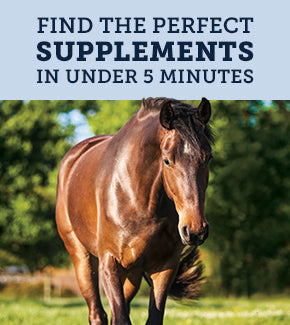It is best practice for all horses to be dewormed in the spring, along with their detoxification system to be supported.
Parasitic worms live in the intestines of horses and ponies. Small numbers of worms can be tolerated, causing no effect on a horse’s well-being. Larger worm populations can cause a range of issues. Symptoms like diarrhea and constipation, colic, rough and dull-looking coat, poor growth in foals, and respiratory issues such as cough and nasal discharge can indicate that your horse may have worms. Our #13 Herbal Wormer works naturally by simply creating a healthy environment in your horse but an unpleasant one for parasites.
Detoxing is not a fad. Every horse detoxes. It is a natural occurrence in the body. The body is meant to bring good stuff in and take the bad stuff out. The problem is that our horses are getting less of the good and more of the bad than ever before and because of this their kidney’s and liver may need some added support. By supporting the natural detoxification system in the body benefits can include, but not limited to, normal vitality, energy, range of motion in joints, muscle pliability, the body able to respond to allergens normally, and much more. When the bodies detoxification systems are working as they should, the processes that they are responsible for naturally improve. Supporting your horse with the #27 Liver and #37 Kidney Support is a great way to allow your horse to respond to excesses and deficiencies naturally in their body.
The Spring Maintenance Bundle includes everything your horse needs to be happier and healthier this spring.
Do All Horses Need to Be Dewormed?
The short answer is yes, all horses need to be dewormed. Parasites are a natural part of a horse's environment, and even the healthiest horses can be at risk of an infestation if they are not regularly treated. Parasites can cause a variety of health issues in horses, including weight loss, colic, diarrhea, and, in severe cases, even death. Therefore, it is crucial to establish a deworming schedule for your horse to keep them healthy and happy.
However, not all horses need to be dewormed at the same frequency. Factors such as age, living conditions, and exposure to other horses can all influence how often a horse needs to be dewormed. For example, young horses are more susceptible to parasites and may require more frequent deworming than older, more established horses. Additionally, horses that are kept in pasture settings with other horses may need to be dewormed more frequently to prevent the spread of parasites.
What Is the Protocol for Deworming Horses?
So, now that we know all horses need to be dewormed, let's dive into the protocol for deworming your horse.
Several different types of dewormers are available on the market, each targeting different types of parasites. Some dewormers are broad-spectrum, meaning they target a variety of parasites, while others are more specific to certain types of worms.
Once you have chosen a dewormer, it is important to follow the instructions carefully. Most dewormers come in a paste form that is administered orally, either by syringe or mixed in with your horse's feed. Make sure to give the correct dosage based on your horse's weight and follow any recommended fasting instructions.
After deworming your horse, monitoring them for any signs of a reaction is important. While most horses will tolerate deworming well, some may experience mild side effects such as diarrhea or colic. If your horse shows any signs of distress after deworming, contact your vet immediately for further guidance.
What Happens if a Horse Is Not Wormed?
If a horse is not regularly dewormed, they can become infested with parasites that can cause a variety of health issues. Some of the most common consequences of not deworming your horse include weight loss, poor coat condition, colic, diarrhea, and, in severe cases, even death.
Parasites can wreak havoc on a horse's digestive system, robbing them of essential nutrients and causing discomfort and pain. This can lead to weight loss and poor coat condition as the horse's body struggles to maintain its health in the face of a parasitic infestation.
Colic is another common issue that can arise from not deworming your horse. Certain types of parasites can cause blockages in the horse's intestines, leading to severe abdominal pain and potentially life-threatening complications. Colic can be a painful and distressing condition for horses, so it is important to take steps to prevent it by deworming your horse regularly.
In severe cases, parasitic infestations can lead to death. While this is rare, it is possible that a horse is not properly dewormed and monitored for signs of parasites. Establishing a deworming schedule with your veterinarian and following their recommendations can help prevent these serious consequences and keep your horse healthy and parasite-free.







